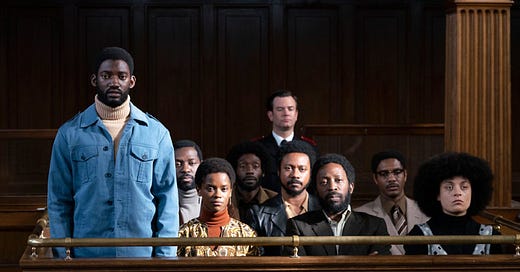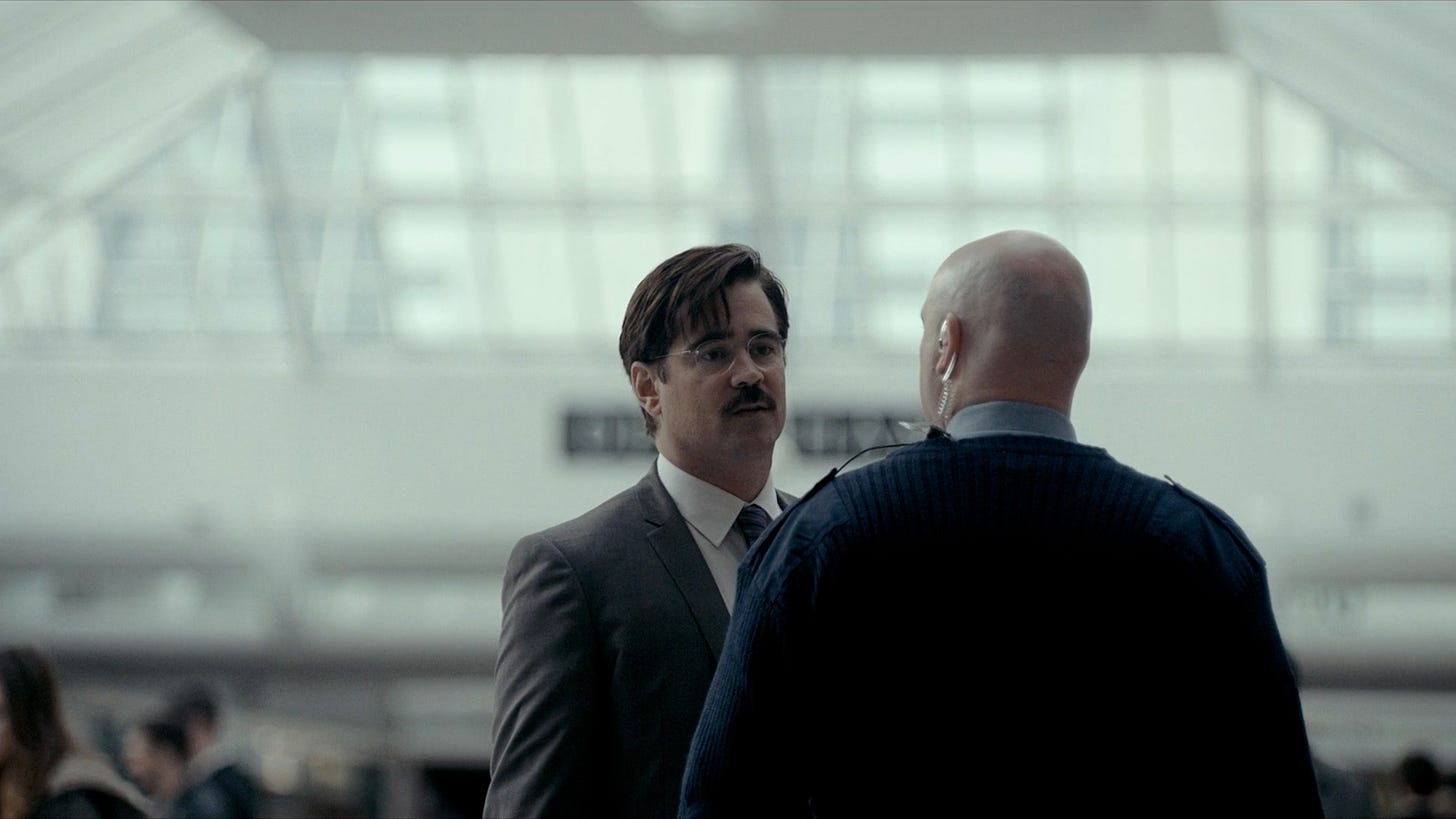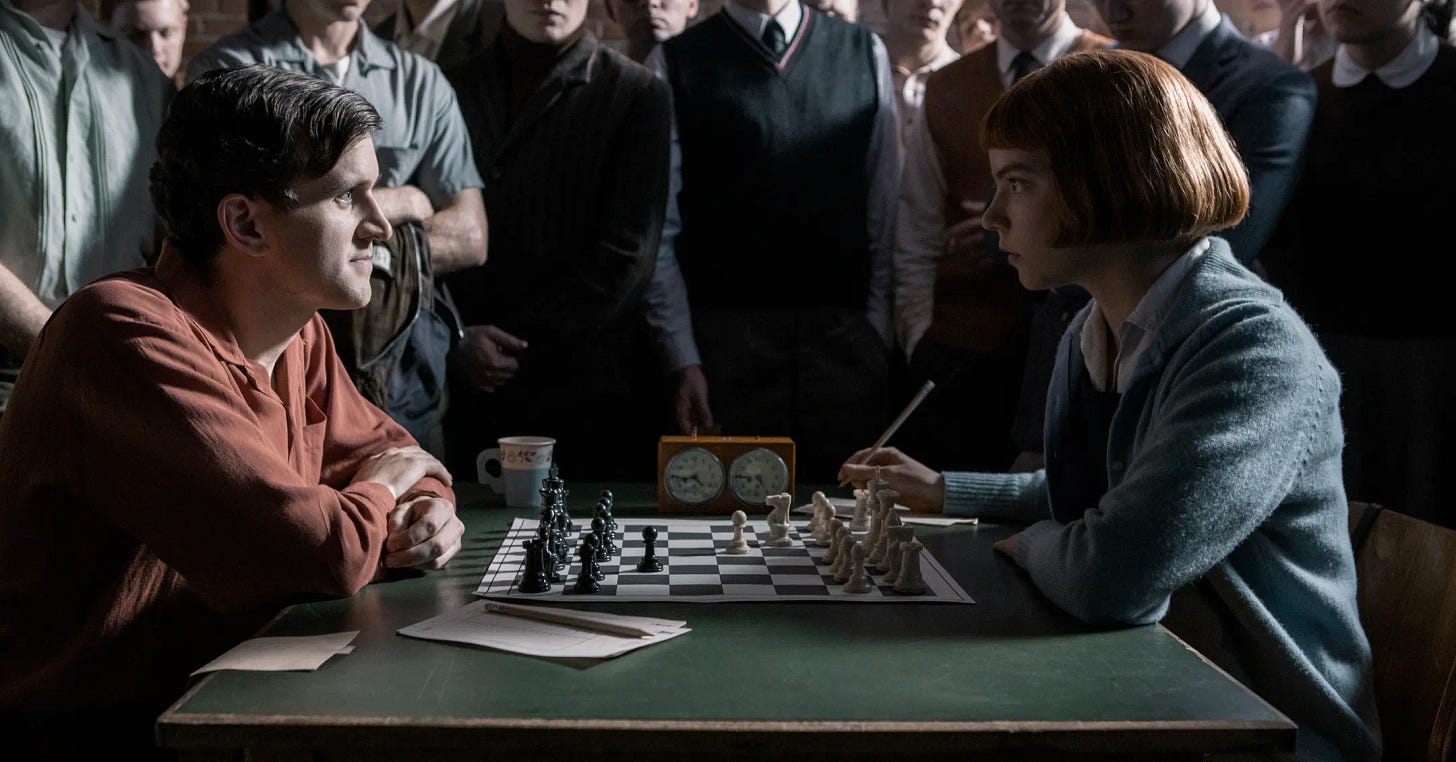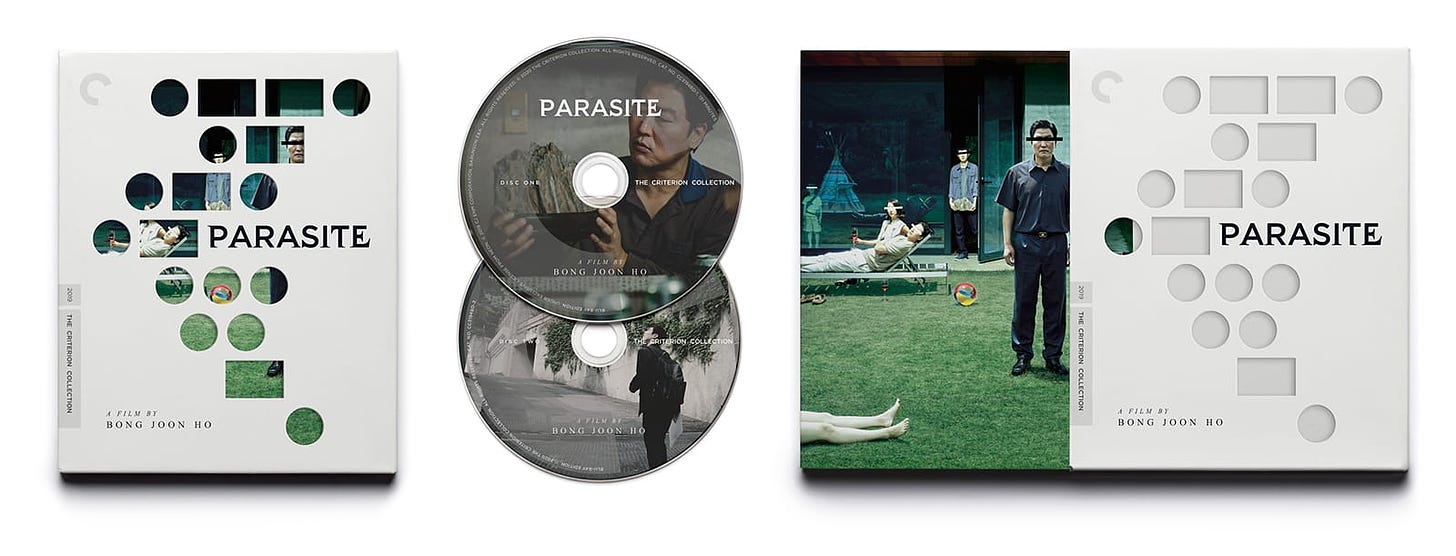Is Medium-Bending the New Genre-Bending?
Steve McQueen's Small Axe // Queen's Gambit // Still More Parasite Content
Hi, Thomas Flight here- I make video essays about film and TV. This is where I write monthly about visual media, share additional background on my recent video essays, and recommend a piece of film or TV I’ve recently enjoyed. If you’re interested in keeping up with my work and what I have to say about visual media, please consider subscribing:
Director Steve McQueen’s Mangrove is a film (and a good one). It’s two hours long, it’s shot on film, it’s written and directed by the same person, it premiered at a film festival. Taken on its own, for all intents and purposes, it appears as a film.
Mangrove is also the first episode in a five part mini-series. IMDB classifies it as part of a TV show.
Mangrove is yet another example of how the lines between what constitute Television and Film are continuing to blur. The mainstream, big budget film studios are now leaning heavily on ongoing narratives and stories that span multiple films to generate loyal audiences. More independent, auteur directors are using the flexibility and audience afforded by streaming TV platforms to tell longer stories. Steve McQueen’s Small Axe anthology that Mangrove is a part of is one example of this, but this year we also saw Derek Cianfrance writing and directing the 6-episode series This Much I Know is True, as well as Luca Quadanino’s 8-episode We Are Who We Are, both for HBO.
Some interesting artifacts of this medium-bending are the TV shows that end up on Letterboxd for some reason. Letterboxd, if you somehow aren’t familiar, is an absolute gem of a social media website, built entirely around logging and review the films that you watch. But it’s not just film a select -perhaps we could say “elite” selection- of television shows, make it into Letterboxd’s system and get logged by people like they would a film. Currently The Queen’s Gambit, and The Haunting of Bly Manor, both Netflix original miniseries, have over 100K combined logs on Letterboxd. Mangrove, and the HBO series I mentioned above, also make an appearance on Letterboxd.
It brings up some interesting questions about how we definite “film” and “tv,” and whether these distinctions are even useful and valuable at this point. They certainly have consequences -what qualifies for awards, what publications might write about, what festivals will accept- but increasingly, especially in a year like 2020 when the experience of “watching a film in a cinema” is distant and rare, the distinction makes little difference to most viewers. Most people will be opening Netflix or another streaming service on their phone, laptop, or TV, where they’ll see films and tv shows directly beside each other, where they’ll view both on the same screen, and where, increasingly, the primary difference between the two is their length. I have a friend who laments the increasing number of miniseries- because they like TV that goes on for many season, and I have another friend who tends to avoid any kind of TV, because they feel it’s a big time commitment. But I think for most viewers, like myself, it’s mostly a pretty easy question of “what am I in the mood for tonight?” Film, seen at home, isn’t that different from modern TV, accept that it provides a contained, singular experience. A dip into a new world, one that will resolve that evening. TV not something more, but something different, an experience that you’ll spend extended time inside, one that could span days, weeks, or months.
This medium-bending is a development that I’m glad many directors and creators, like Steve McQueen, are leaning into, having fun with, and utilizing to tell interesting stories, instead of complaining about and fighting against. Even if the distinction between the two is valuable and worth making, I personally don’t see any downside to the barriers for creators moving between the mediums being torn down.
In my last issue I talked about whether or not 2020 is killing cinema, and while it might not entirely kill the existence of cinema as we know it (the experience of going to a movie theater)- perhaps it will be another part of what kills the separation between the mediums. I think the distinction will last for a long time in some form, but I think it will continue to become one that is less and less technically meaningful, and more of a cosmetic description of what kind of “high production value visual media” you’re consuming.
Rising to takes the TV/Film distinctions place will likely be the distinction between “online video” and more traditionally produced narrative and documentary content. TV shows might be ending up on Letterboxd, but for the most part people aren’t blurring the lines between YouTube or TikTok content and Film or TV- and yet we don’t have good terms to separate these categories, even though they’re two types of moving-image media that are clearly discernible.
Do you think these terms and separations matter? If they do, why? I’d love to hear what you think in the comments:
Essays Published This Month:
The Lobster, is a film that felt (as I suspect it does for most people) largely inscrutable on first watch. It certainly didn’t help that the film was also my introduction to the work of Greek Director Yorgos Lanthimos. The film was the beginning of my journey into the work of one of the most unique and interesting directors working today.
It was only through gaining a broader perspective of Lanthimos’ work as a whole, particularly the unsettling masterpiece The Killing of a Sacred Deer, and twisted Dogtooth, that I began to understand not only what Lanthimos was trying to say with The Lobster, but how he was going about saying it.
So my latest video on the strangeness of The Lobster and how Lanthimos constructs such bizarre worlds is one I’ve been mulling over and planning to make for quite some time. MUBI, a long time sponsor of my channel, collaborated with me on this video, giving me early access to Lanthimos new short film NIMIC. NIMIC built nicely on a lot of what I had been theorizing about a specific thread in Lanthimos’ work, and it turned out to be a fantastic opportunity to finally dive into the work of a director I’ve long been fascinated by.
The Queen’s Gambit has drawn a lot of well deserved attention. (As mention above receiving the “honor” of being a TV show frequently logged on Letterboxd). It has a few rough edges, but overall it’s a really enjoyable show that does a great job of utilizing film form to dramatize a game that isn’t inherently cinematic.
I was particularly impressed by Anya Taylor Joy’s performance. She’s building a nice body of work for herself with The VVitch, the underrated Thoroughbreds, and this year’s Emma. Joy really brings to life Beth’s internal struggle.
It reminds me of another film based on a Walter Tavis novel: 1961’s The Hustler starring Paul Newman. The film has been a long time favorite of mine, and while the stories are certainly very different, they both focus on talented individuals who’s struggle with their game resides primarily inside themself. The internal struggle is vital to both stories, and it takes a talented performer to realize that internality on screen.
I’m sorry I really thought I was done with Parasite videos. . .
but then I recently picked up the new Criterion Release of the film, and got to check out Bong’s Black and White rendition of the film, which I couldn’t resist commenting on.
Honestly I enjoyed this a lot just as a personal experiment. I was curious to see if viewing the film I’ve probably watched and dissected the most in my life without color would really bring anything new to the experience. It did end up offering a new perspective on the film, as well as some clear downsides.
It was a fun video to make, and it brings a close to my 5-part series on Parasite.
Recommendation:
This month I’m going to recommend Steve McQueen’s Mangrove. It’s worth watching and is available now on Amazon Prime video in the US. Pair it as a double feature with Aaron Sorkin’s The Trial of the Chicago 7 on Netflix to see how two different directors approach a similar subject matter and story structure in very different ways.
I personally think McQueen’s ability to wield the camera and cutting blade for emotional impact is much greater, even though Mangrove may suffer from pacing issue in a few areas, it ultimately hit me much harder the Sorkin’s film. Sorkin plays one note really well, but has a hard time knowing how and when to deviate from that, dropping the dramatic ball at the most critical moments.
Follow-Up:
I wanted to highlight a comment from Nomen est Omen on last month’s newsletter. They mention how they’ve observed independent theaters in the Netherlands are thriving during the pandemic by focusing on classic programming, even while larger chain theaters suffer. This is an example of what to me seems like the best case scenario for COVID-19's disruption of theaters- a displacing of the dominant programming for a more diverse offering. I unfortunately haven’t seen the same thing in my area in the US, although I live in a smaller city where this is less likely to be taking place. If you’ve observed any interesting patterns in cinema-going and programming in your area, I’d be interested to hear about it.
Happy Thanksgiving to all my readers who celebrate it! I’m personally thankful that I’m able to do what I love, talking about these things, for a living. Last month marked start of my 5th year making video essays, and it’s been an incredible journey so far.
If you enjoyed this newsletter and know someone who you think would also enjoy it, please consider sharing it with them:
Peace and Love,
TF






